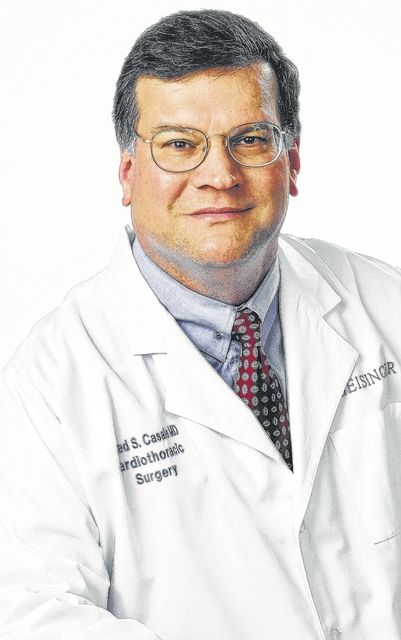Click here to subscribe today or Login.
I missed “Ask a Stupid Question Day.” This year, it was Friday, Sept. 29 that we celebrated the day, started by teachers in the 1980s who wanted to give their students permission to ask questions they usually felt too embarrassed or shy to bring up.
Don’t you love the concept? I always tell my patients that the only thing stupid about a question troubling them, is if they don’t ask it.
So, in honor of the concept, if on the wrong day, let’s talk stupid questions.
Sitting in the exam room during a doctor’s appointment, you might feel a little bit uneasy. It’s not uncommon to be nervous, especially if you’re seeing your doctor for more than just a well visit or checkup.
But it’s important to overcome nerves and speak up if you have questions so you can make the best decisions about your own health.
An informed patient is a good patient, and we want patients to ask us as many questions as possible — even the ones patients might think are “stupid.” Most doctors share my opinion that there are no “dumb” questions, which is why you should be as up-front as possible.
Here are six simple questions you should never hesitate to ask your doctor:
1. What is this test for?
After a physical exam and a discussion about a specific pain you’re feeling or a trouble you’re having, your doctor might order some tests to help diagnose the problem. But your doctor, who is familiar with hundreds of medical tests, might refer to a test by acronyms or mention more than one without explaining them in detail.
Asking what each test is for — and what happens during the test — can help prepare you for it and bring peace of mind.
2. When will I get the results?
Waiting is the hardest part, especially if you’re not sure how long you should wait for an answer.
When a doctor orders a test, be sure to ask them when you’ll find out the results. Then, confirm this with the person drawing blood or assisting with the MRI. For example, if your doctor says you’ll hear within two weeks and that time frame passes, don’t assume the results haven’t been sent to your doctor. Be proactive and call them.
3. Are there any alternative treatments?
Your doctor will recommend the best treatment option based on vast experience and your specific condition and health history. However, you should understand what all of your treatment options are so you can make the best decision.
Don’t feel like you’re challenging your doctor if you want to hear about what other treatments could be out there. You are the best advocate for your own health, and you have the right to understand all of your options as well as the pros and cons to each.
4. How do you spell the name of that drug?
I can’t stress how important it is to know which medications you take, how much and when you take them. You should communicate your prescribed medications to each doctor you see so they can ensure they don’t prescribe medications that will interact with what you’re already taking.
A pharmacist can also help you with prescription drug-related questions.
5. How will this affect my daily life?
Surgery, a specific type of treatment or even a new medication could impact your daily life. It’s important to find out what will change, what is normal and what isn’t normal. This will help you monitor side effects and prepare for any adjustments you should make to your daily routine.
6. Why?
Don’t ever hesitate to ask for clarification when your doctor explains something. In fact, you should feel free to ask the same question twice if you still don’t understand or you’ve forgotten the reason.
Asking why can help you gain perspective on your illness or treatment, get a better understanding of your overall health, and, ultimately, take better control of your life.
And we all could use that …








